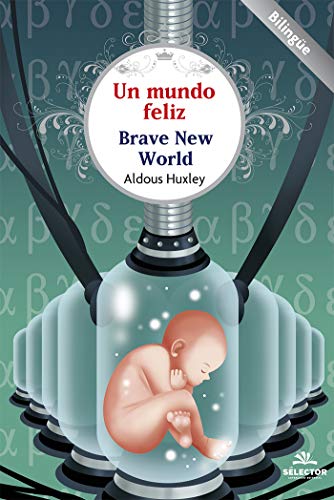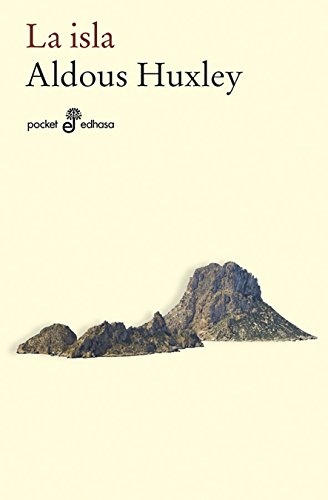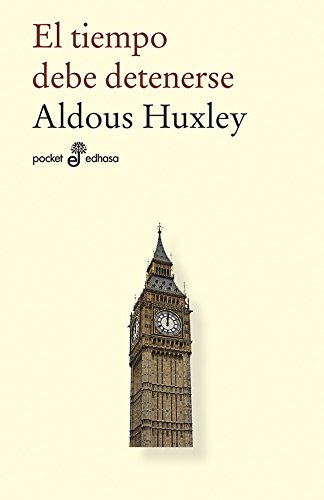There are authors who hide behind their best works. It is the case of Aldous Huxley. A happy world, published in 1932, but with a timeless character, it is that masterpiece that every reader recognizes and values. A Transcendental science fiction novel that delves into the social and political, in the perspective already intuited at the beginning of the 20th century about what human civilization could become as a result of its increasingly bureaucratized and inaccessible social organization for the majority of its members.
The fit of the individual in the prevailing morality, in the pertinent legislation and in the proposed organizational systems is always a difficult accommodation. The human being, always contradictory by nature, can hardly submit to permanent dictates, unless the leaders are capable of achieving an effect, a deception, a trick to subject us all.
And back in the twentieth century, authors like Huxley himself or George Orwell they raised what they expected of a dystopian future, subjected to newspeak and post-truth. Nowadays, not infrequently we discover ourselves immersed in that future that is our present, reached as a self-fulfilling prophecy exposed by authors like these two previous ones and some others who delved into political science fiction.
3 essential novels by Aldous Huxley
A happy world
It could not be otherwise. In first place in this author's ranking and probably within any slightly broader ranking of 20th century literature. If you feel frustration, take a dose of soma and readjust your thinking towards the happiness that the system offers you.
That you are unable to fulfill yourself in a dehumanized world, take a double dose of soma and the world will end up embracing you in a lavish dream of alienation. Happiness was never really anything other than a chemical adjustment. Everything that happens around you is a predictable general plan with basic guidelines halfway between stoicism, nihilism and a chemical hedonism ...
The novel describes a world in which the worst predictions have finally come true: the gods of consumption and comfort triumph, and the orb is organized into ten apparently safe and stable zones. However, this world has sacrificed essential human values, and its inhabitants are procreated in vitro in the image and likeness of an assembly line.

The Island
The explosive idea of Brave New World, its extraordinary exhibition and incredible social impact should always have remained inserted in the author's imagination. Revisiting a great work cannot be easy, so it is better not to succumb to the idea. But Huxley, in a fit of good spirit, thought of writing about the utopia that could surpass the dystopia of his great work.
The island represents that possible world where human beings can fulfill themselves and be happy in those moments when life allows us to be happy, while learning and wisdom can be derived from sadness. The balance of self-realization. Although really, sinning utopian but not sentimental idealist, Huxley also hinted in this novel that the risks are always there.
On the utopian island of Pali, in an imaginary Pacific, journalist Will Farnaby discovers a new religion, a new agricultural economy, a surprising experimental biology, and an extraordinary love of life. The exact reverse of Brave New World and Brave New World, the island brings together all the reflections and concerns of the late Aldous Huxley, undoubtedly one of the most audacious and interesting authors of the 20th century.
From this contrast, a reflection on the values that Farnaby embodies, those of the Western world, is easily derived and that questions them. The dialogue between this exotic island and the Western world highlights, above all, life in the West and the risks that this entails for human beings.
Time must stop
There is more life in Huxley than Science Fiction. I really believe that every science fiction author ends up being a potential philosopher who poses hypotheses about human beings in the world. Because in reality, the world, the cosmos, is something completely unknown to us, and Science Fiction always deals with unknown aspects.
That is why in this case, we discover a brilliant work on the human being, its growth, its learning and the subjective world created by our civilization. Sebastian Barnac is seventeen years old. He is an extremely shy, handsome teenager with the soul of a poet, who inspires affection and tenderness for his childish features. One summer he travels to Italy and at that moment his education will really begin.
Bruno Rontini, a pious bookseller who teaches him about the spiritual, and Uncle Eustace, who introduces him to the profane pleasures of life, will be his teachers. But all this is only the pretext for Aldous Huxley to create a work that goes much further: a novel of ideas, a novel of characters, a critique of human history and a journey into the reality of the unknown; a novel that unravels human behavior until, in the epilogue, it shows, at the same time, all its greatness and all its misery.
First published in 1944 and considered by Huxley himself as his best novel, Time Must Stop is part of Shakespeare's celebrated verses and, from a fascinating window on XNUMXs English society, we are impressed by Huxley's genius. as a narrator and creator of dramatic situations, but also, and above all, for his amazing investigation into the contradictions of XNUMXth century philosophy, the true nature of pain, hope and time.


